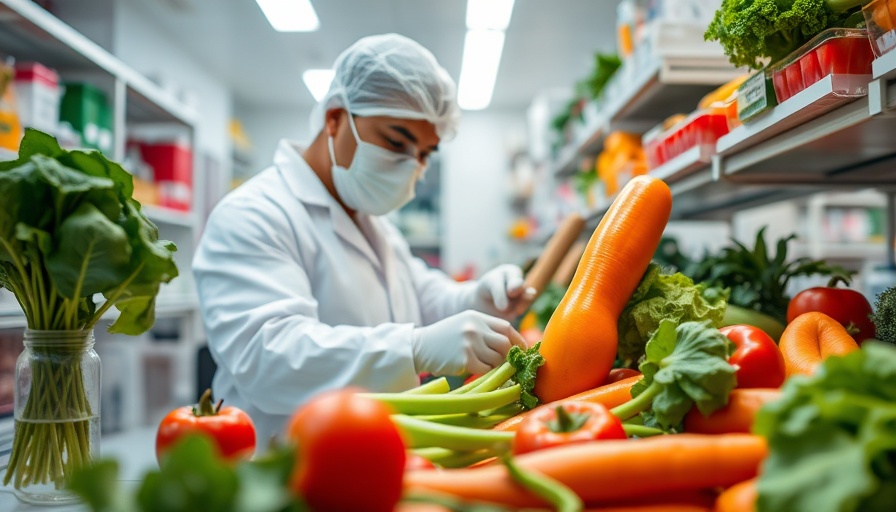
The Rising Importance of Food Safety in South Africa
As South Africa grapples with its challenges in ensuring the safety and quality of food products, the market for food safety testing is poised to see substantial growth, projected to reach $579.2 million by 2035. This growth not only reflects an increasing demand for higher standards of food safety in the wake of numerous foodborne illness outbreaks but also highlights the evolving regulatory landscape that governs food quality and public health.
Value of Food Safety Testing
Food safety is pivotal in safeguarding public health. The rise in consumer awareness regarding foodborne illnesses has forced businesses to invest more in food safety testing. Through rigorous testing and quality assurance measures, food safety testing can mitigate risks and enhance consumer trust. South Africa’s ongoing transition towards better compliance with international food safety standards demonstrates that this sector is not only growing but vital for maintaining the integrity of the food supply chain.
Market Drivers and Economic Implications
Several factors propel the food safety testing market in South Africa. A notable driver is the increased influence of consumer organizations and advocacy groups that prioritize food safety as a matter of public concern. Additionally, the government’s enhanced focus on regulatory compliance – supported by legislative frameworks like the Foodstuffs, Cosmetics and Disinfectants Act – boosts the demand for advanced food safety testing services. Investment in testing technology also acts as a catalyst for growth, with innovations improving efficiency and accuracy.
The Call for Accountability in Food Safety
Accountability in food safety is paramount. As businesses face stricter scrutiny from regulatory bodies, effective food safety testing is crucial not only for compliance but also for protecting brand reputation. The recent moves by organizations such as the National Consumer Commission emphasize the importance of adherence to safety standards. By enforcing rigorous testing protocols, companies can avoid costly recalls and maintain consumer confidence, which ultimately benefits the overall economic landscape.
Future Trends in Food Safety Testing
Looking ahead, the South African food safety testing market is expected to evolve significantly. Future trends indicate an increasing reliance on digital technologies, such as AI and blockchain, to enhance traceability and regulatory compliance. Moreover, as climate change impacts agricultural practices, the testing landscape will likely expand to include environmental testing services. Farmers and manufacturers will need to stay ahead of these trends to meet both consumer expectations and regulatory demands.
Taking Action for Safer Food
Professionals within the agricultural, manufacturing, and retail sectors must prioritize food safety. Harnessing the growing market for food safety testing offers businesses the opportunity to strengthen their operational frameworks while ensuring the health of consumers is at the forefront of their priorities. The call is clear: investing in food safety testing is not merely an optional expenditure but a necessary commitment to safeguarding public health and maintaining industry credibility.
For those working in related sectors, engaging with these developments now will allow you to position yourselves strategically. Whether through lobbying for better food safety regulations or investing in advanced testing solutions, there is a profound need for active participation in this growing market. Together, we can foster a culture of accountability and transparency in food safety.
 Add Row
Add Row  Add
Add 




Write A Comment